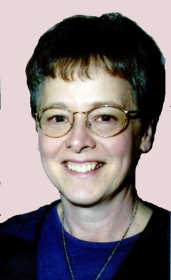- January is 'Kansas Radon Action' month (1/15/13)
- Advice on making your New Year's resolutions stick (12/26/12)
- Tips for a safe and healthy holiday season (12/4/12)
- Prepare now to enjoy the holiday season (11/13/12)
- Food safety tips make fall picnics, tailgates winners (10/2/12)
- Make a grab-and-go box to prepare for disasters (9/11/12)
- Family time around the dinner table is important (8/21/12)
Opinion
Secrets to finding happiness in life
Wednesday, June 25, 2008

Last week I watched several of the television specials about the life of Tim Russert, moderator of Meet the Press. While he was acknowledged to be a great journalist, everyone also mentioned his attitude toward life and his constant smile. Most of the stories which were told were not about his interviews with famous people, but about his concern for and interest in other people and his positive attitude.
Contrary to the belief that happiness depends on having great wealth, researchers have identified several core factors in a happy life. The primary components are number of friends, closeness of friends, closeness of family and relationships with coworkers and neighbors. Together, these factors explain about 70 percent of personal happiness. Dr. David Niven, a psychologist and social scientist, has written about the secrets to happiness in the book, The 100 Simple Secrets of Happy People.
Dr. Niven says that "studies have shown that one of the best predictors of happiness is whether a person considers his or her life to have a purpose. Without a clearly defined purpose that people come up with themselves, they're likely to feel unsatisfied with their lives." Dr. Niven offers the following suggestions for finding happiness.
* Cultivate friendships. Rekindle past relationships and take advantage of opportunities at work or among your neighbors to expand your friendship base. "People need to feel they're part of something bigger, that they care about others, and are cared about by others in return," says Dr. Niven.
* Accentuate the positive. Happy people and unhappy people explain the world differently. When an unhappy person must interpret the world, eight of 10 times he or she will see the negative in an event. When a happy person does so, eight of 10 times he or she will see the positive.
* Don't confuse stuff with success. You're neither a better nor a worse person because of the kind of car you drive, the size of your home or the job you have. In one study, the availability of material resources was nine times less important to happiness than the availability of "personal" resources, such as friends and family.
* Volunteer. Volumes of research show a strong consensus that volunteering contributes to happiness by creating an increased sense of purpose in people's lives. Volunteers, on average, are twice as likely to feel happy with their lives as people who don't volunteer.
* Enjoy what you have. Satisfied people appreciate what they have in life and don't compare themselves to others. Valuing what you have over what you don't or can't have leads to greater happiness.
* Don't face your problems alone. "Problems can appear to be unsolvable," Dr. Niven says. "But we're social creatures who need to discuss our problems with others, whether it be those who care about us most or those who have faced the same ones we have. When we're alone, problems fester. By talking to others, we can gain perspective and find solutions."
Editor's Note: Ann Ludlum is a K-State Research and Extension family and consumer sciences and 4-H extension agent assigned to Bourbon County. She may be reached at (620) 223-3720 or aludlum@ksu.edu.

